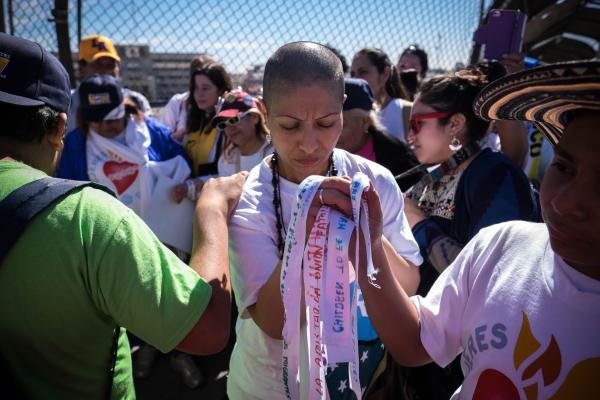Feb 17, 2016
The legislative consequences of Pope Francis’ visit are still to be seen, though Speaker of the House Paul Ryan has vowed to block immigration reform until 2017. Nevertheless, for Andrea Cristina Mercado, who describes her relationship with Catholicism as “fraught,” the Francis Effect is already real.
“He is a really holy, spiritual leader,” she said. “[Pope Francis] drew me back into the church.”
Read the Full Article

Already a subscriber? Login
